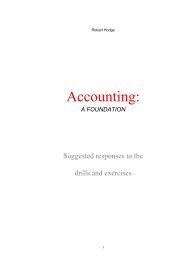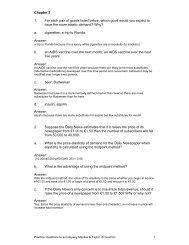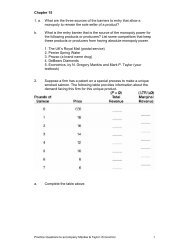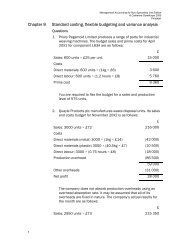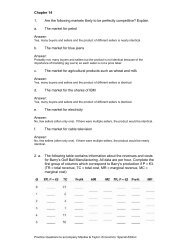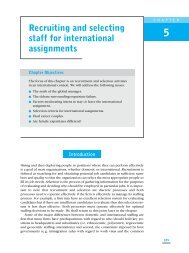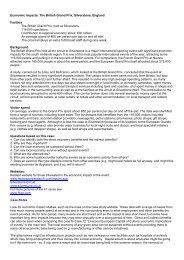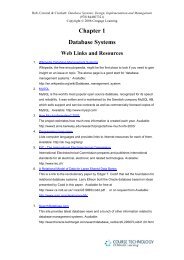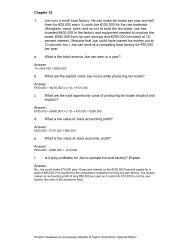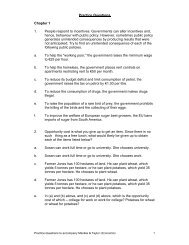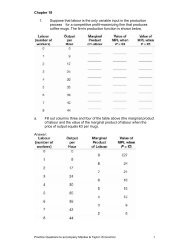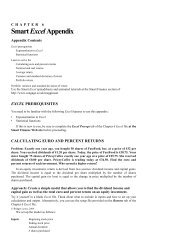Answer - Cengage Learning
Answer - Cengage Learning
Answer - Cengage Learning
You also want an ePaper? Increase the reach of your titles
YUMPU automatically turns print PDFs into web optimized ePapers that Google loves.
increase in a tax fails to cause market participants to leave the market and a great deal ofadditional tax revenue is generated with little increase in deadweight loss.Chapter 9You are watching the nightly news during an election campaign in which trade policy hasbeen a big issue. A member of the public being interviewed says, "I'm for free trade, but itmust be fair trade. If our foreign competitors will not raise their environmental regulations,reduce subsidies to their export industries, and lower tariffs on their imports of our goods,we should retaliate with tariffs and import quotas on their goods to show them that wewon't be played for fools!"1. If a foreign country artificially lowers the cost of production for its producers with laxenvironmental regulations and direct subsidies and then exports the products to us, whogains and who loses in our country, producers or consumers?<strong>Answer</strong>: Consumers gain, producers lose.2. Continuing from question 1 above, does our country gain or lose? Why?<strong>Answer</strong>: Our country gains because the gains of the consumers exceed the losses of theproducers.3. If a foreign country subsidizes the production of a good exported to our country, whobears the burden of their mistaken policy?<strong>Answer</strong>: The taxpayers of the foreign country.4. What happens to our overall economic well-being if we restrict trade with a country thatsubsidizes its export industries? Explain.<strong>Answer</strong>: Producers gain, consumers lose, but consumers lose more than producers gainso total surplus is reduced and there is a deadweight loss. The result is no different thanrestricting trade when the foreign producer has no unfair advantage.5. Is there any difference in the analysis of our importation of a good sold at the cost ofproduction or sold at a subsidized price? Why?<strong>Answer</strong>: No. In either case, the world price is lower than the before-trade domestic price,causing consumers to gain and producers to lose from trade. Also, restrictions on tradecause consumers to lose more than producers gain whether the production of the goodwas subsidized or not.6. Is it a good policy to threaten trade restrictions in the hope that foreign governments willreduce their trade restrictions? Explain.<strong>Answer</strong>: Usually not. If the other country fails to give in to the threat, the threateningcountry has to choose between backing down and reducing trade—neither of which isdesirable.



